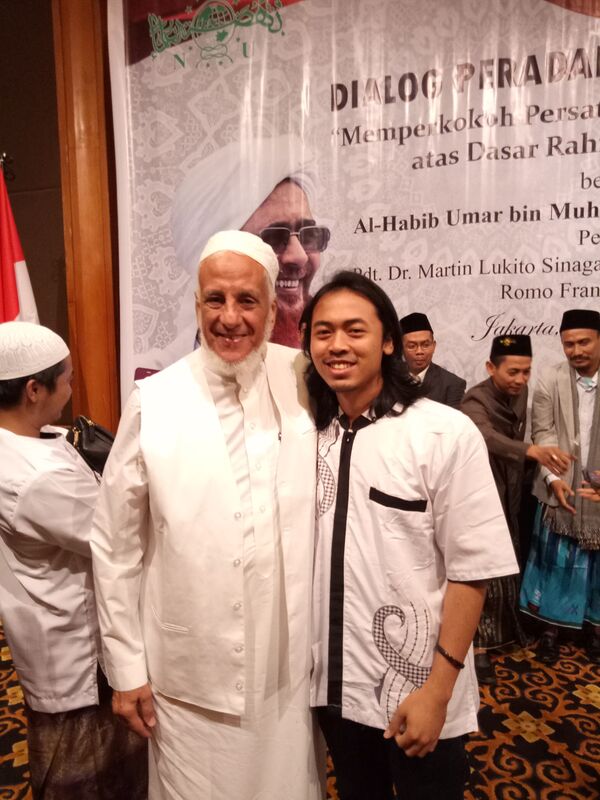Dialogue of Life and Faith

I am Yudis, originally from Indonesia, where more than 80% of the population are Muslims, especially on my island of Java. Personally, I see Islamic-Christian dialogue as a gift from God.
Thank God, I grew up in a family and in an environment where Muslims and Christians live together in peace. My dad was a Muslim; he was baptized when he was young, but the vast majority of his family are still Muslims (his brothers and cousins). I had a good relationship with Muslims especially in my dad’s big family. My Muslim cousin lived in our family for 6 years because of school.
I remember during the month of Ramadhan, when he was fasting, I accompanied him to go to the mosque. We too visited all the homes of my cousins when the day of eid al-fitr came. This good relationship with Muslims exists not only in my family environment, but also with my neighbors and schoolmates, since we have known each other well since we were children. So I can see that dialogue is truly a gift from God and can grow among us, Christians and Muslims.
One beautiful thing that has always struck me is when eid adha day comes. They bring us the cow meat they sacrificed, even though we as Christians don’t celebrate it. But even in everyday life, we do not lack collaboration, both for the safety of the village (we take turns among the adults to protect the village at night) and for public hygiene: sometimes we do the cleaning together. On Independence Day, Muslim and Christian children collaborate to organize the party and animation competitions with the children and adults of the village. Therefore, the dialogue that I have lived is not only a dialogue of life but also a dialogue of work or action.
What I see as a challenge of Islamic-Christian dialogue concerns the theological aspect and the dialogue of religious experience. I realize that, as a Xaverian missionary, in addition to the dialogue of life and that of the works that I have already experienced in daily life, I also need to prepare myself for this type of dialogue. In my opinion these types of dialogue (about theological aspects and religious experience) can also be relevant in the Italian and European context, and could involve both local churches and civil authorities more.
I lived the experience of interreligious dialogue even after I joined the Xaverian family. I remember that in our philosophy community, in Jakarta, as the person in charge of interreligious dialogue, every two months I had the opportunity to organize various activities on this theme. Of the 6 dialogues we had, 3 were meetings with Muslims. Even if in all these moments of dialogue, there seemed to be no problems, we were well aware that it was not easy to arrive at the theological exchange. Sometimes we only focused on the diversity of dogma or traditions even though, both Christian and Muslim, we come from the same root (Abrahamic monotheism). It is true that the first problematic aspect in theological dialogue is that Islam thinks of itself as the overcoming and correction of Judaism and Christianity. But even if it seems difficult to arrive at the theological exchange between Muslims and Christians, I believe there is always hope.
Perhaps Muslims do not believe Jesus as the son of God, but together with his mother Mary, they have put Jesus in a special place in the Islamic faith. As in sūra 50 where Jesus and Mary are declared as a “sign” or a “prodigy”. This is also seen in sūra 45-46. Maybe we can start from this theme to initiate an Islamic-Christian theological dialogue, even if I realize that not everyone is aware of the importance of this theme. In my opinion, Mary, who is also highly respected in the Koran, could be a key figure for Islamic-Christian dialogue.
In the end, seeing the challenge of Islamic-Christian dialogue and recognizing it as a gift, we can respect each other, as Habib Lutfi bin Yahya (one of the imams in Indonesia) said, “if it is difficult to find reasons to respect the followers of other religions, the reason they are similar creatures created by Allah SWT is enough ”.
Willybrordus Aditya Yudistira is a seminarian with the Xaverian Missionaries in Indonesia

